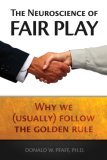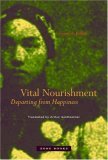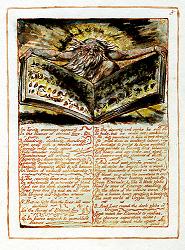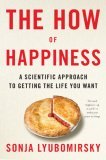December 27, 2007

The Neuroscience of Fair Play: Why We (Usually) Follow the Golden Rule by Donald W. Pfaff
by Donald W. Pfaff
“Renowned neuroscientist Donald Pfaff upends our entire understanding of ethics and social contracts with an intriguing proposition: the Golden Rule is hardwired into the human brain.”
Dana Foundation book information, including Table of Contents and excerpts
Comments (2)
- cognitive science,new books
December 25, 2007
 Browsing in some new books today, I came upon this:
Browsing in some new books today, I came upon this:
Living has no meaning (except by way of projection or fabulation), nor is it absurd (despite the spiteful reaction of disbelief); it is beyond meaning.
François Jullien, Vital Nourishment: Departing from Happiness (tr. Arthur Goldhammer), p. 8
(tr. Arthur Goldhammer), p. 8
Comments (0)
- new books,reality
December 22, 2007
I’ve been reading a couple of novels set in India, in which occasionally I come across some Indian cultural references or terms I’m not familiar with. I could sorta get an idea from the context but I thought I’d look them up online. For example, “golgappa” – finding this post about the food (“one of the top 5 most sexy things you can put in your mouth”!) really made the scene in the book come alive.
That’s just one small example of how the web can enhance reading (for those of us who still read books – see recent NEA report) – along with author & book websites, ebooks, online discussions and reviews, the ability to search inside books, watch videos of the authors, find obscure used books, etc.
This blog post “What does it mean to read?” from Out of the Jungle also touches on some of the ways reading is changing [Kirschenbaum is the author of an article in the ‘Chronicle of Higher Education’]:
The digitization of literacy changes many things. Kirschenbaum comments on how reading and writing are becoming commingled in surprising ways. For instance, I was just looking at the Nature Alert, a form of table of contents/alert publication. Once upon a time, it was just a list of abstracts to alert the reader of full-length articles in the journal Nature. Now, besides the abstracts with links, one can access videos where authors discuss their research. Once, they had a sound file of a musician experimentally playing a very ancient bone flute. They have podcasts which expand the brief notes, covering a variety of the headlines each week with different stories. The articles include hyperlinks to references, encouraging the inquiring reader to follow multiple paths of related thought. And readers can post comments, and react to the comments of others.
Nature Alert has become a blog, a current awareness journal, links to complete science studies and literature, and multi-media extravaganza, all at once.
 See also:
See also:
“Twilight of the Books” article at the New Yorker
“A Good Mystery: Why We Read” from the New York Times
Comments (0)
- reading
by Sonja Lyubomirsky.





 See also:
See also:

